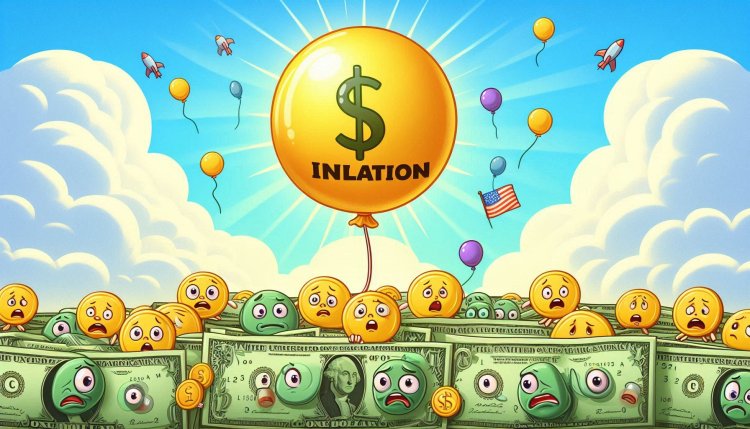Impact of inflation on investments
Learn how inflation can erode the value of your investments and strategies to mitigate its impact on your portfolio. Invest wisely to beat inflation.

Impact of Inflation on Investments
Investors are always concerned about the impact of inflation on their investments. Inflation refers to the rise in the prices of goods and services over time, leading to a decrease in the purchasing power of money. This erosion of purchasing power can have significant implications for investment returns and overall portfolio performance. Understanding how inflation affects investments is crucial for investors to make informed decisions and protect their wealth.
1. Purchasing Power Erosion
One of the most significant impacts of inflation on investments is the erosion of purchasing power. As the general price level rises, the same amount of money can buy fewer goods and services. This means that the real value of an investor's returns diminishes over time. For example, if inflation is running at 3% per year and your investment returns are only 2%, you are effectively losing purchasing power.
2. Fixed-Income Investments
Fixed-income investments such as bonds are particularly vulnerable to inflation. When inflation rises, the fixed interest payments from bonds are worth less in real terms. This can lead to a decrease in the overall return on investment. Investors holding long-term bonds may face significant losses in purchasing power if inflation outpaces the yield on their bonds.
3. Equities and Real Assets
Equities and real assets like real estate and commodities are often considered better hedges against inflation. Companies can adjust their prices and revenues to account for inflation, which can help protect the real value of equity investments. Real assets, such as real estate, tend to appreciate in value over time, providing a potential hedge against inflation.
4. Inflation-Protected Securities
Investors concerned about the impact of inflation on their fixed-income investments can consider inflation-protected securities like Treasury Inflation-Protected Securities (TIPS). These securities are designed to provide a hedge against inflation by adjusting their principal value in line with changes in the Consumer Price Index (CPI). Investing in TIPS can help preserve the real value of your investment in times of rising inflation.
5. Diversification
Diversification is key to mitigating the impact of inflation on investments. By spreading your investments across different asset classes, sectors, and geographies, you can reduce the risk of inflation eroding the value of your portfolio. Diversified portfolios are better positioned to weather the effects of inflation and maintain purchasing power over the long term.
6. Interest Rates and Inflation
Interest rates play a crucial role in the relationship between inflation and investments. When inflation rises, central banks may raise interest rates to curb inflationary pressures. Higher interest rates can have a negative impact on bond prices, as yields need to increase to attract investors in a high-inflation environment. Investors need to consider the interplay between interest rates, inflation, and their investment portfolios.
7. Rebalancing and Reviewing Investments
Periodic rebalancing and reviewing of investments are essential in managing the impact of inflation. As inflation rates change, the performance of different asset classes may vary. Rebalancing your portfolio to align with your investment goals and risk tolerance can help mitigate the effects of inflation. Regularly reviewing your investments and adjusting your strategy as needed is key to preserving the real value of your wealth.
8. Long-Term Perspective
Investors should maintain a long-term perspective when considering the impact of inflation on investments. While inflation can erode the value of money in the short term, long-term investments have historically been able to outpace inflation and generate real returns. By focusing on long-term financial goals and staying invested through market fluctuations, investors can better withstand the effects of inflation on their portfolios.
Conclusion
Inflation can have a significant impact on investments, affecting purchasing power, investment returns, and overall portfolio performance. Investors need to be aware of the implications of inflation and take proactive steps to protect their wealth. By diversifying their portfolios, considering inflation-protected securities, and maintaining a long-term perspective, investors can navigate the challenges.
What's Your Reaction?














